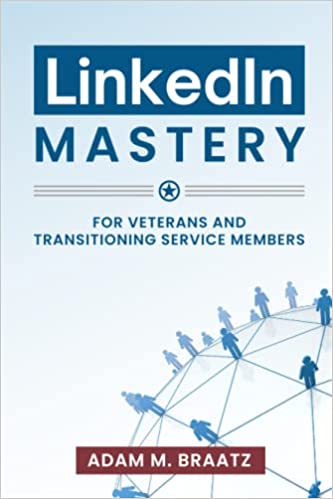Many people wonder if jobs and employers actually call references often, or if
it's something they only do on occasion. And this doubt makes them unsure if they
should spend time on providing excellent references, or if it makes more sense to
focus on applying to more positions.
This post will help you understand the likelihood of an employer calling your references,
and if that means they're interested in hiring you or not.
Do Employers Actually Call References?
With hiring processes becoming increasingly automated, many job-seekers wonder if
potential employers even call anyone on their list of references. Most applications
require you to provide at least one reference, but will they actually receive a
call?
While hiring managers and human resources departments will occasionally refrain
from contacting references, most of the time they will. That means it's still important
to provide reliable references who can speak to your character and work ethic. Recent
surveys showed that most (over 85 percent) of employers contact references at some
point in the hiring process.
But when potential employers decide to contact your references will vary.
In many cases, employers make calls early in the hiring process. It's often part
of the early screening process where decision-makers start weeding out candidates
to narrow their choices. They may contact references for applicants who pique their
interest or those with all the qualifications necessary for the job.
In these scenarios, calls help hiring managers determine if you're worthy of moving
further in the hiring process.
Some employers do things differently, reserving reference calls for much later in
the hiring process. It's ultimately all a matter of preference and approach. These
hiring managers may rely solely on your resume and interview skills to determine
whether you're a good candidate. Once they narrow the pool of candidates down to
a handful of top choices, they'll contact references to get outside perspectives
about a potential employee's potential. This approach saves time for the hiring
manager, allowing them to make only a handful of calls versus hundreds.
Those are the two most common scenarios. However, some employers may not contact
references at all. Although these situations are rare, hiring managers could decide
you're a great candidate without the perspective of references.
Either way, it's important to provide a list of references who can speak highly
of you. Be sure to tell your references what type of job you are applying for and
what you want them to emphasize when contacted. Hiring managers still value that
information, whether they call your references during the hiring process or not.
And some companies may call past references later if you're ever in the running
for a promotion.
Do Employers Check References If They Aren't Going to Hire You?
Many employers will contact your references before extending a job offer. As mentioned
earlier, many will contact references to fact-check and learn more about your qualifications
once they narrow down the pool of potential hires.
It's a good sign when employers reach out to references. However, there are no guarantees!
Don't take it as a sure thing that you'll get hired.
Speaking with references is just part of the hiring process and can occur at any
point. There's no defined approach. Human resources professionals develop their
methods for learning about potential hires, which may or may not include discussions
with your references.
Furthermore, some contact references far earlier, while others wait until they have
a good idea of your potential for success in the role.
You can get excited if you hear back from your references that a hiring manager
contacted them. However, that's no reason to rest on your laurels, halt your job
search, or leave your current job. The only way to know you're getting the job is
to hear it from a potential employer.
Situations When Employers Are Most Likely to Call References
There are many reasons why an employer could contact your references. The people
you include on your application are another resource hiring managers will use to
learn about you. It's akin to your resume and list of qualifications.
Like other resources, the employer will choose when and how to utilize your references.
One of the most common situations when human resources perform a reference check
is during the initial hiring process. This usually happens after your first interviews.
It's when employers complete their due diligence to ensure you're the right person
for the job.
Pre-employment screening occurs before companies extend a job offer. There may be
a few other candidates in the running, and this process helps employers make their
final decision. Screening involves many steps, including checking your qualifications,
performing background reviews, security clearances, etc.
Contacting your references allows an employer to cover their bases and identify
any last-minute issues that may give them reason to consider someone else.
Another situation when employers contact references is during early applicant review.
Depending on the job, hiring managers may receive hundreds of applications that
they need to narrow down to a much more manageable number before starting interviews.
In this situation, contacting references is more about identifying what sets you
apart from other applicants. Your resume and qualifications may meet the mark on
paper. However, the same likely applies to several others in the candidate pool.
Employers can reach out to references to learn more about you and obtain additional
information that may differentiate you from others. Those conversations can shed
more light on your capabilities and help employers understand what sets you apart.
Human resources may also contact references long after you get a job. While references
are most often utilized during the hiring process, those contacts are valuable in
various situations.
While employers will learn a lot about you during the hiring process, some aspects
of your potential in this role won't become apparent until after you start working.
Employers might contact references for more insight.
For example, you might struggle with a specific skill or display a point of concern
that makes hiring managers question if you're the perfect fit. In those cases, employers
may call references to help clear things up. They might also speak with past employers
to see if these issues are one-off things or recurring problems.
Questions Your References Will Often Be Asked
When one of your references is called by a potential job, there are many different
questions that they might be asked. Usually, the conversations they have will vary
based on your relationship with each individual reference. For example, the questions
they ask a former employer will differ greatly from those they ask a former colleague
or educator.
Generally, questions will fall under one of several categories.
The first are those focused on detailed verification. Human resources may question
one or more aspects of your resume. They don't necessarily doubt your honesty but
might need clarification about a former job, certification, dates of employment,
or reason for leaving .
Contacting references is a great way to learn more. So, they'll contact the person
with the most familiarity with your resume.
Questions can also revolve around specific qualifications and skills. Employers
call references to learn about what you bring to the table. Speaking with a reference
about your past experiences will provide valuable insight into how those qualifications
might translate into the open position.
Hiring managers can also ask questions about soft skills and intangible qualities.
Finding the perfect candidate involves more than finding someone with all the right
skills and education. You must also fit the company's culture, know how to work
with others, etc.
One of the best ways to learn about those qualities and characteristics is to speak
with references who've seen you in action. Employers might ask about how you are
in the office, what you're like in a team environment and more. Many will also ask
about situational habits and other details they won't learn from your resume.
Former employers will often receive more focused questions. Hiring managers typically
ask about your performance in your past jobs, honing in on relevant skills that
apply to the new role. It's also common for employers to ask previous employers
about how and why you left.
Will Every One of Your References Be Called?
Companies can ask for multiple references. In fact, most employers will require
you to provide one to three during your initial application.
Will they contact all of them? In many cases, they won't. However, that all depends
on the types of references you provide and what information employers want to learn.
There are no defined rules about employers calling references, and a hiring manager's
approach can vary from one application to the next. It's common for at least one
to be contacted. In most cases, they'll choose the reference with the most information
to give, such as a former employer.
They might reach out to another if they want to learn more or can't get all the
information they're after from a single reference. But it's rare for employers to
call each one. Therefore, selecting high-quality references who can speak well of
your potential, performance and qualifications is important.
Conclusion
As you can see, employers often call at least one of the references you provide.
The biggest variable is when in the hiring process they decide to do it!
That's why it's so important to provide great references when applying for jobs.
Nothing can sell your skills as well as positive feedback from others!



